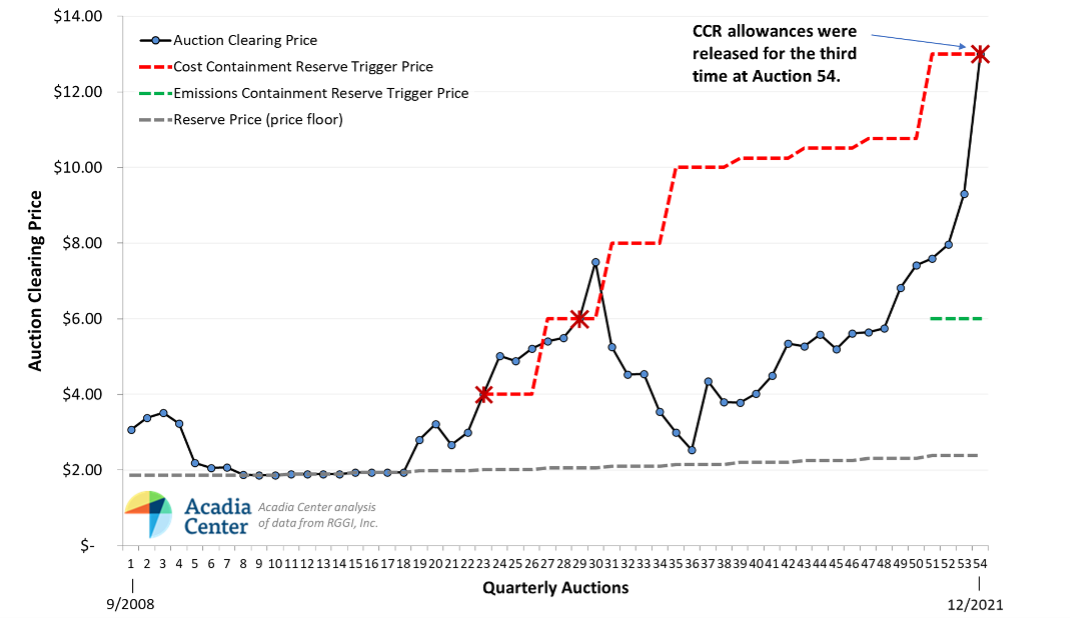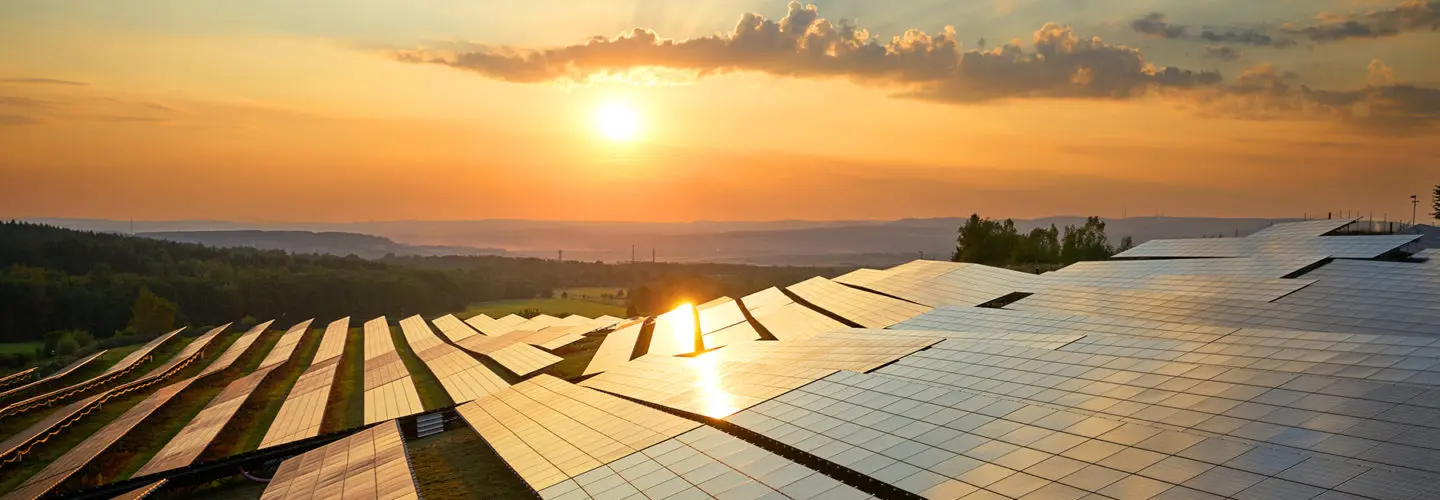RGGI auction sets new highs, demonstrates need for climate and justice reforms
BOSTON, MA- Today, the states participating in the Regional Greenhouse Gas Initiative (RGGI) announced the results of the program’s record-setting 54th auction. Emissions allowances were sold for $13.00 each, generating $351 million in proceeds for investment in the clean energy economy. Both the allowance price and the auction proceeds establish new record highs for the RGGI program, which has now been in operation for 13 years. Auction 54 also resulted in the release of additional allowances from the Cost Containment Reserve (CCR), undermining the program’s environmental integrity.

Higher RGGI allowance price is good for climate, clean energy investment
The auction clearing price of $13.00 is 39% higher than the clearing price from the previous auction in September, and 75% higher than the clearing price from one year ago. The clearing price represents the price that power plant operators must pay for each ton of CO2 emitted by their fossil-fuel-fired plants. The recent increase in allowance prices means the RGGI program is sending a stronger incentive to produce electricity from carbon-free sources, like wind and solar.
The record-high amount of proceeds generated from Auction 54 is also a boon for the clean energy economy. Since the program launched, the vast majority of RGGI proceeds have been invested in energy efficiency and clean energy projects. Today’s announcement that participating states will be receiving $351 million from the latest auction (bringing the annual total to $926 million) is great news for climate action, the economy, and the growing workforce in energy efficiency and clean energy.
Necessary RGGI Reforms for Environmental Integrity and Justice
Today’s auction results also reveal serious problems that the RGGI states must address with urgency.
Today’s auction clearing price of $13.00 met the Cost Containment Reserve (CCR) trigger price of $13.00, resulting in the addition of 3.9 million allowances to an already oversupplied market, allowing increased emissions from the region’s power plants. Given the desperate need of the RGGI states—many of which are struggling to meet their climate targets—to reduce power sector pollution, allowing additional emissions beyond the cap is unacceptable. Acadia Center and our partners have opposed the use of a CCR and its design since its introduction. As a reiteration of recommendations Acadia Center has made in both of the previous RGGI Program Reviews to preserve the program’s effectiveness and environmental integrity, the RGGI states must either eliminate the CCR or reform it by: 1) significantly increasing the price trigger and 2) withdrawing allowances from future supply, rather than minting new allowances.
Even more importantly, today’s auction results demonstrate the critical and overdue need to ensure that RGGI auction proceeds are invested equitably. The RGGI program imposes no requirements on participating states to guarantee equitable investment, and most of the participating states lack processes to ensure RGGI-funded investments deliver meaningful and proportional benefits in overburdened and underserved communities. As a result, many states invest RGGI proceeds into clean energy projects that, while effective in reducing climate pollution, fail to address the inequities in the clean energy transition. In other cases, RGGI funds are used to fill budget gaps, addressing neither climate nor justice imperatives. At a minimum, the RGGI states must adopt requirements for equitable investment that are consistent with the Jusitce40 Initiative, developed by the White House Environmental Justice Advisory Council. If the RGGI states applied this framework to the investment of RGGI proceeds from 2021, they would be investing at least $370 million in disadvantaged communities in one year alone.
The RGGI states are currently in the midst of the Third RGGI Program Review. This presents an ideal opportunity for the states to commit to the reforms described above, along with a suite of additional measures (like a dramatically reduced emissions cap and more inclusive processes) to ensure the program supports a just transition to a carbon-free future. For more information on the Third Program Review and to participate in upcoming meetings, see: https://www.rggi.org/program-overview-and-design/program-review.
Media Contacts:
Jordan Stutt, Carbon Programs Director
jstutt@acadiacenter.org, 617-742-0054 x105
198 Tremont Street, Suite 415, Boston, MA 02111
###
Acadia Center is a nonprofit research and advocacy organization committed to advancing the clean energy future. Acadia Center advocates for an equitable clean energy future for Connecticut, tackling regulatory and legislative energy policy, transportation, energy efficiency, beneficial electrification, utility innovation, and renewable energy.




















Follow us